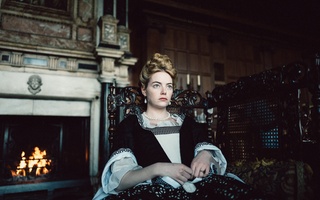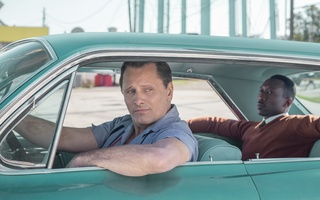With midterm elections on the horizon and the increasing political unrest in the country dominating daily headlines, Ike Barinholtz’s film directorial debut, “The Oath” — a dark political satire about family dynamics and political ideologies in a shifting America — hits a little too close to home. The film follows staunchly liberal Chris (Barinholtz) and his wife Kai (Tiffany Haddish) as they attempt to survive Thanksgiving with Chris’s Republican family members after a government loyalty pledge has divided the country.
Though he had directed and produced episodes of “The Mindy Project” before, Barinholtz stepped into new territory with “The Oath,” writing, directing, and starring in the film. Barinholtz praised the newfound freedom while discussing his experience in these new roles.
“If you’re just an actor, you have these filters,” he said. “You have the writer’s words as one filter, and then the director’s vision as his or her filter, and then the same thing with the editor. The appeal of having an idea and being able to present it to people without those filters was very attractive to me.” Barinholtz conjured up the idea for the film directly after the November 2016 elections, citing how important it was throughout the subsequent writing process for the script to stay current with the rapidly changing political events in the country.
“Initially Mason (Billy Magnussen) in my mind was an older guy — he was a guy in his late 50s,” he explained. “And then when I watched the footage on Charlottesville, I wasn’t seeing a lot of oldies, I was seeing a lot of young men. And so immediately the next day I started refashioning the character.” It was both relieving and terrifying, Barinholtz explained, to see the craziness of his script modeled in current events.
It was important to Barinholtz that some comic relief balance out the tone of the film. One such example occurs in the middle of a violent and suspenseful scene when Chris’s dad (Chris Ellis) attempts to turn on the TV and keeps pressing the wrong buttons.
“My dad has never once used the remote correctly,” Barinholtz said, laughing. “That [scene] was pulled from the headlines of my life.” While he strove to treat the problems expressed in the film with the sincerity they deserved, Barinholtz felt it was important to maintain a comedic tone, adding small lines of comedy to the tension in order to maintain a level of humanity.
Though the role he plays is mostly autobiographical, Barinholtz hopes that people don’t become like his character, Chris.
“It is okay to unplug,” he said, asserting it is important not to let fluctuations in the world determine our happiness. “I was basically Chris. A year up to the election, and the year after the election, I was glued to my phone, and I was letting it dictate my mood. I was letting something that Mitch McConnell said affect my mood when I was playing with my daughter. How stupid is that? We’re on this earth for, like, eight seconds, and if we are just so wrapped up and we’re letting it dictate our lives so much, I think you would look at that as a waste of time one day. So I’m hoping people can find the balance that I’m still trying to find.”
“I know so many people who are like, ‘I’m not going to talk to my aunt ever again,’” he added. “I hear a lot of that — ‘I’m done with him.’ I’m not telling people what to do… you have to make those decisions [for yourself]. But I do believe in cycles.”
He went on to describe a world after Donald Trump. “If we have cut all these ties to anyone who challenges us, I think we won’t be able to get those ties back and I don’t know how we move forward,” he said. “I feel like we have an obligation to try at least to keep somewhat tethered to the people that we’re supposed to care about… You meet new friends in your life, but your family is your family.”


















